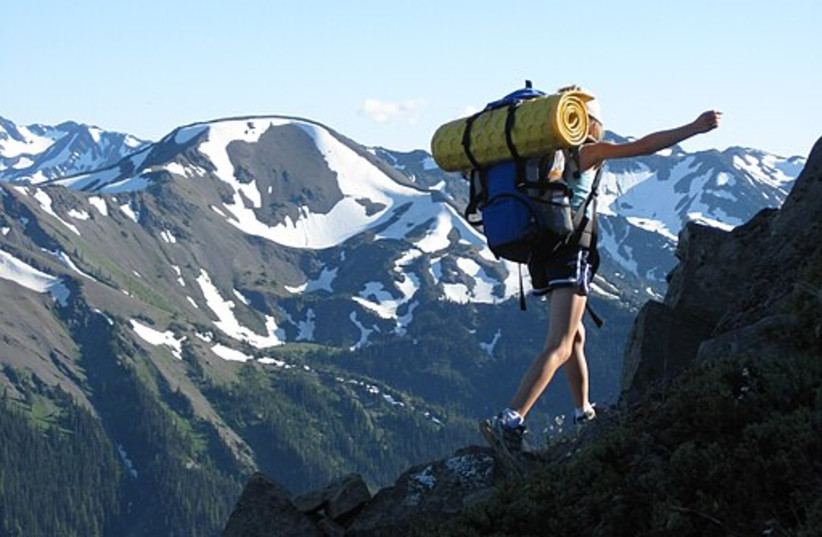Is it safe to backpack solo?
Backpacking solo can be safe, but it requires careful planning and awareness. The key is researching your destination thoroughly, understanding the local culture and customs, and staying updated on any travel advisories. Choosing well-trodden paths and staying in places with good reviews from other solo travelers can also enhance safety. It’s essential to stay connected with family or friends and share your itinerary with them. Many solo backpackers find that maintaining situational awareness and trusting their instincts helps them stay safe on the road.
Packing efficiently is crucial for solo backpacking
Essential items include:
- A durable backpack
- Lightweight clothing suitable for different weather conditions
- Reliable footwear
- A first-aid kit
- Navigation tools like maps and a compass or GPS
- Basic cooking equipment and a portable stove
- A multi-tool or knife
- A tent or hammock for camping
- Non-perishable food and water purification tablets
- Personal hygiene items
- Emergency supplies such as a whistle, flashlight, and spare batteries
- Identification, money, and travel documents

How do I choose a destination for solo backpacking?
Choosing a destination depends on your interests, experience level, and safety considerations—research destinations known for being solo traveler-friendly, such as Europe, New Zealand, and Japan. Consider the climate, terrain, and cultural aspects of the destination. It's also helpful to read travel blogs, guidebooks, and forums to get insights from other solo backpackers. Destinations with established backpacking routes and good infrastructure for travelers are ideal for first-time solo backpackers.
What should I do to prepare for a solo backpacking trip?
Preparation is critical to a successful solo backpacking trip. Start by researching your destination thoroughly. Make sure your passport and any necessary visas are up to date. Get any required vaccinations and check health advisories. Practice packing and carrying your backpack to ensure you can manage the weight. Create a detailed itinerary and share it with someone you trust. Train physically by taking smaller hikes and carrying a loaded backpack to build endurance. Additionally, ensure your financial arrangements are secure, and you can access emergency funds.
What are some tips for staying safe while backpacking solo?
Staying safe while backpacking solo involves a mix of preventive measures and intelligent decision-making:
- Always inform someone about your travel plans and update them regularly.
- Stick to well-traveled paths and avoid isolated areas, especially at night.
- Carry a personal safety alarm and a whistle.
- Keep your valuables secure and avoid displaying expensive items.
- Trust your instincts; remove yourself from the situation if something feels wrong.
- Stay aware of your surroundings and the people around you.
- Learn basic self-defense techniques.
Navigating unfamiliar places alone can be challenging but manageable with the right tools and mindset:
- Use reliable navigation apps like Google Maps or offline maps like Maps.me.
- Carry a physical map and a compass as a backup.
- Learn basic phrases in the local language to ask for directions.
- Download and study maps of your destination before arrival.
- Stay in areas with good signage and information for tourists.
- Feel free to ask locals or fellow travelers for help if lost.
How do I handle emergencies while backpacking solo?
Handling emergencies while backpacking solo requires preparation and calmness:
- Always carry a first-aid kit and know how to use it.
- Have travel insurance that covers medical emergencies, evacuation, and trip cancellations.
- Keep emergency contact numbers easily accessible.
- Familiarize yourself with the nearest medical facilities and emergency services in your destination.
- Stay calm and assess the situation before taking action.
- In case of theft or loss, report to local authorities and contact your embassy if needed.
How do I ensure my belongings are secure while backpacking solo?
Keeping your belongings secure involves a combination of vigilance and practical measures:
- Use a sturdy, lockable backpack.
- Keep your valuables, such as passports, money, and electronics, in a hidden money belt or a neck pouch.
- You can use hostel lockers or safes whenever you have a free moment.
- Please distribute your cash and cards in different places to reduce the loss in case of theft.
- You can secure your tent or accommodation when you leave for the day.
- Be mindful of pickpockets and scams, especially in crowded areas.
How do I manage food and cooking while backpacking solo?
Managing food and cooking while backpacking solo requires planning and simplicity:
- Plan your meals and carry lightweight, non-perishable food items like instant noodles, dried fruits, nuts, and energy bars.
- Bring a portable stove and lightweight cooking utensils.
- You can learn how to start a fire if you plan to cook over an open flame.
- Store food properly to prevent attracting wildlife.
- Stay hydrated by carrying a water filter or purification tablets.
- Consider local cuisine and street food options to supplement your supplies.
